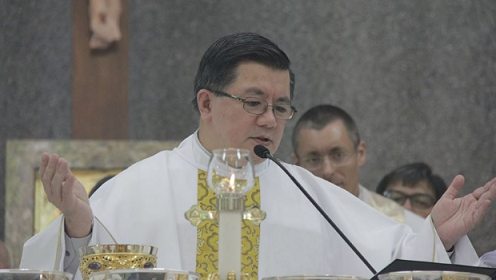Easter Sunday - Year C
Acts 10:34,37-43; Colossians 3:1-4; Gospel of John 20:1-9
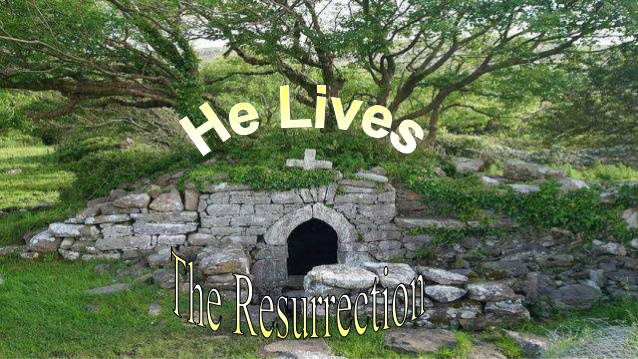
Preached by Msgr Philip Heng, SJ at Cathedral of Good Shepherd, Singapore on 21 April 2019
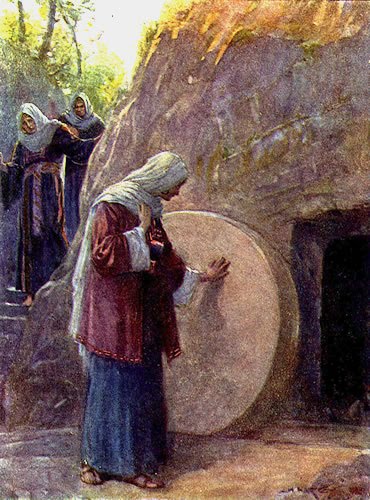 In today’s Gospel of St John that we just heard proclaimed, when Mary of Magdala went to the tomb and saw that the stone had been moved away, she ran to Simon Peter and reported what happened to him . . . and when Peter and John also ran to the tomb and saw it empty; all that remained were the linen cloths on the ground and another set of linen cloth rolled up by itself at another part of the tomb. John’s Gospel tells us that “till this moment, the disciples had failed to understand the teaching of scripture, that Jesus must rise from His death.”
In today’s Gospel of St John that we just heard proclaimed, when Mary of Magdala went to the tomb and saw that the stone had been moved away, she ran to Simon Peter and reported what happened to him . . . and when Peter and John also ran to the tomb and saw it empty; all that remained were the linen cloths on the ground and another set of linen cloth rolled up by itself at another part of the tomb. John’s Gospel tells us that “till this moment, the disciples had failed to understand the teaching of scripture, that Jesus must rise from His death.”
My brothers and sisters in Christ, even in the other three Gospels the disciples of Jesus were not expecting Jesus to rise from His Death, regardless of the many times Jesus had proclaimed and prophesised that He would Suffer and Die at the hands of the Jewish authorities, but that He would rise from His Death three days later. Jesus repeated this at the Last Supper. In Mark’s Gospel, the three women who went to the tomb after Jesus died, were astonished and frightened when they found the tomb empty (Mk 16:1-8). In Matthew’s Gospel, even when the disciples saw the risen Jesus with their own eyes, they doubted that it was really Jesus who had risen. In Luke’s Gospel, being downcast at the suffering and death of Jesus by Crucifixion, the two disciples who were walking towards Emmaus, also could not recognise the Risen
My sisters and brothers in Christ, let us first note that, the apostles, in spite of being the closest companion of Jesus, and who were groomed and taught by Him could not comprehend. As such, they did not expect Jesus to rise on the third day after His Death. In many ways we too, even as we profess our faith in the Creed, and believe what we celebrate Easter Sunday today as Christ has Risen, it would be good to reflect on what the Resurrection of Jesus concretely means to us in our daily living.
Otherwise, like the disciples, the great event of the Resurrection of Jesus, and our liturgical celebration today and in the coming weeks, may not affect us as deeply as God Wills for us.
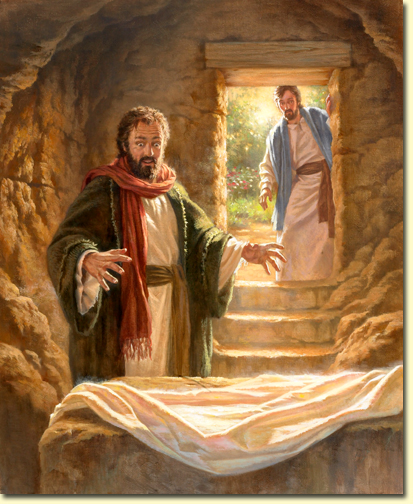 One of the main reasons why the reality of the Resurrection of Jesus does not have significant effects on many of us is because we limit and reduce God’s infinite Love into what we experience as finite human love; we allow our experiences of human pain and suffering to hinder us from believing in the Good News that proclaims that our lives on earth does not end at death, but continues to live on for all eternity. This eternal life is won for us through Jesus the Risen Christ through is Suffering, Death and Resurrection.
One of the main reasons why the reality of the Resurrection of Jesus does not have significant effects on many of us is because we limit and reduce God’s infinite Love into what we experience as finite human love; we allow our experiences of human pain and suffering to hinder us from believing in the Good News that proclaims that our lives on earth does not end at death, but continues to live on for all eternity. This eternal life is won for us through Jesus the Risen Christ through is Suffering, Death and Resurrection.
As such, like the disciples, we allow our human experiences of pain, suffering and “death”, especially the pain of having lost a loved one, to create the false belief that our life on earth ends at death. And as such, it is very understandable, to hear of parents going through traumas and crises in their lives, when they lose their precious children; more so if they are young, and when the death is due to sudden tragic accidents or in suicides. Such parents, may go into deep depressions and guilt for years, and some even no longer think that life is worth living.
James (not his real name), is one of our poor and needy of our Cathedral’s Social Mission ministry. James’ wife, living overseas, could not take the pain and suffering of providing for their children, some months ago decided to take her life, and those of her two children. She fed them and herself with rat poison. Several weeks later the only surviving son of around 14 years old, who could not take the pain of the loss of his mother and siblings, jumped to his death. James was so traumatised, that he could no longer find any meaning in living anymore . . . No amount of persuasion could soothe the agony of James; the darkness and deep depression that he was going through was daily threatening him to end his own life, so that he could join his family, as he says he longs to be with.
As James is a Christian, he somehow found himself attending our Cathedral’s Holy Week preparation sessions on: the 7 Last Words of Jesus and also the two guided contemplations on the Suffering and Death of Jesus. Our Lord touched James during the sessions and he realised how Jesus Himself has suffered infinitely more than what he is going through. More so, when Jesus was trying to proclaim the Good News of Salvation, and that He is the Son of God who is sent by His Father to save all of mankind, through the repentance of their sins, and the acceptance of Him as their Saviour and Lord.

James began to realise that Jesus has suffered and died because He loves Him, and in the divine mystery of Jesus’ Suffering and Death, Jesus also loves his innocent children and wife, who in God’s Mercy, are in heaven. James shares that he is for the first time, able to find strength from God to continue to live.
My brothers and sisters in Christ, historically 2,000 years ago, Jesus did suffer and die and also rise from His Death, three days after He died. The faith experiences of the twelve apostles in the Resurrection of Jesus, transformed the self-protective fears, of being persecuted by the Jewish authorities, into a band of disciples that were fearless.
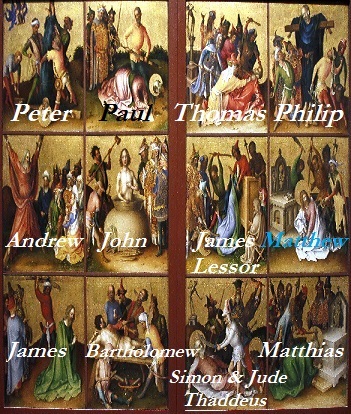 Being filled with the graces and divine power of the Holy Spirit of the Risen Christ, even as mere fishermen, the twelve apostles at the risk of their lives defied the Supreme Court of their country and proclaimed the Truth of the Risen Christ. Historically, the apostles’ courage and constancy of their testimonies of Jesus’ Resurrection, clearly proved that, if the apostles had just imagined or more incredibly still, invented the Resurrection of Jesus, in all probability, some of them would have recanted their stories, under the extreme persecutions that they had to bear, and especially when they were under threat of death, like Jesus their Master and Lord.
Being filled with the graces and divine power of the Holy Spirit of the Risen Christ, even as mere fishermen, the twelve apostles at the risk of their lives defied the Supreme Court of their country and proclaimed the Truth of the Risen Christ. Historically, the apostles’ courage and constancy of their testimonies of Jesus’ Resurrection, clearly proved that, if the apostles had just imagined or more incredibly still, invented the Resurrection of Jesus, in all probability, some of them would have recanted their stories, under the extreme persecutions that they had to bear, and especially when they were under threat of death, like Jesus their Master and Lord.
Instead of retracting the Truth of the Resurrection of Jesus, that offers Eternal Life, ten out of the twelve apostles, willingly and happily died a martyrs’ death, like Jesus, their Lord and Saviour, while the other two apostles although not martyred, remained faithful and passionate in proclaiming the Gospel of Christ.
My brothers and sisters in Christ, as I sum up and conclude, we noted earlier that the apostles and disciples upon the death of Jesus, did not believe in the testimonies of the women who went the tomb. We see clearly now that, when the apostles then encountered the Risen Christ, and were empowered by the power of the Holy Spirit, they had the strength even to die for their faith in the Truth of the Risen Christ. As such, the apostles and the thousands of believers that followed, did NOT produce the resurrection. On the contrary, it is the Resurrection that produced their faith.
As such, let us not limit the divine Truth and the abundant graces that the Risen Christ wants to give us, as He gave the apostles and disciples, to live the fullness of our faith in Jesus our Risen Lord.
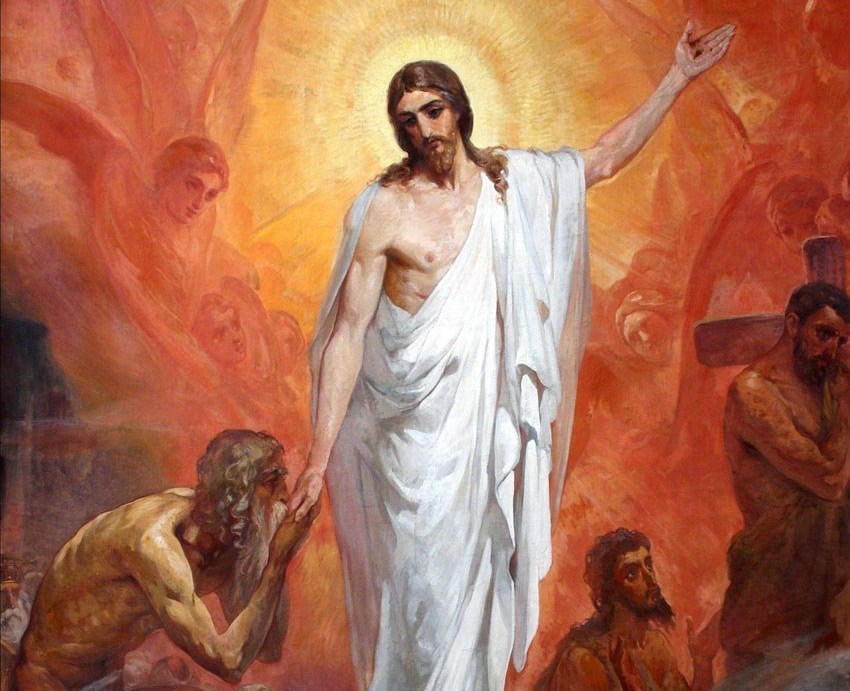
Let us also draw inspiration and learn from the true story of James, of our example, that even as we are burdened by the pains and sufferings in our lives, whatever they may be, let us not create hindrances in the growth of our faith and relationship with Jesus.
Like the apostles and disciples, let us not allow the Sufferings and the Death of Jesus be in vain, but instead let us realise that it is only through the Sufferings and Death of Jesus that He was able to proclaim and witness with infinite credibility that that the Eternal Life that He offers through His Resurrection, is REAL and is offered to all who believe in Him . . . and so let us REJOICE in the Good News of Easter that we are called to celebrate. . . and believe even more strongly, that not only the suffering of our lives but, our death too is destroyed through our Lord’s Resurrection!
Msgr Philip Heng, S.J.
